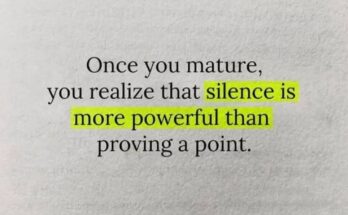“There is nothing more dangerous than a fool with conviction.” This timeless warning encapsulates a sobering truth: the most perilous individuals are not the ones who know they are uninformed, but those who are profoundly ignorant and utterly convinced of their own brilliance. In a world saturated with information, where everyone has a platform and an opinion, the line between knowledge and delusion becomes dangerously thin. The man who mistakes his ignorance for genius becomes not only a threat to himself but to those who listen to him.
The Greek philosopher Socrates once said, “The only true wisdom is in knowing you know nothing.” This humility—this self-awareness—is the very foundation of true intelligence. In contrast, the ignorant man who thinks he is a genius walks with unshakable arrogance. He speaks loudly, acts boldly, and refuses correction. His ignorance is armored with ego, and his confidence, though hollow, is contagious. As Bertrand Russell famously noted, “The trouble with the world is that the stupid are cocksure and the intelligent are full of doubt.”
We see this archetype play out through history and across disciplines. In politics, science, business, and even religion, countless disasters have been sparked by those who believed themselves infallible. These are not people who quietly got it wrong; they are those who insisted they were right while dragging others into their delusions. Mark Twain’s words ring loudly here: “It ain’t what you don’t know that gets you into trouble. It’s what you know for sure that just ain’t so.”
In psychology, this phenomenon has a name: the Dunning-Kruger Effect. Identified by social psychologists David Dunning and Justin Kruger, it refers to a cognitive bias wherein people with low ability at a task overestimate their ability. This effect illustrates why the most dangerous ignorance is not passive but active—driven by a false sense of superiority. “A little knowledge is a dangerous thing,” wrote Alexander Pope, and nowhere is that more evident than in the mind of a man who knows just enough to be dangerous but not enough to be wise.
The modern world makes it easier than ever for ignorance to masquerade as insight. With social media, anyone can appear to be an expert with a few confident words and a strong opinion. But confidence is not competence. Loudness is not leadership. And popularity is not proof of intelligence. As Carl Sagan warned, “We live in a society exquisitely dependent on science and technology, in which hardly anyone knows anything about science and technology.”
This essay will explore the anatomy of dangerous ignorance—the kind wrapped in pride and presented as brilliance. It will analyze why such individuals rise, how they cause harm, and what we can do to recognize and resist them. Because as Voltaire said, “Those who can make you believe absurdities can make you commit atrocities.” And at the center of many absurdities lies an ignorant man who thinks he is a genius.



https://myteana.ru/forums/index.php?autocom=gallery&req=si&img=6612